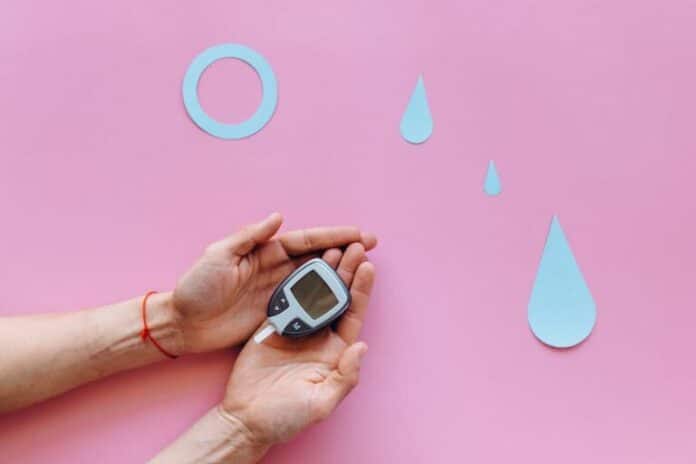
Today, managing diabetes is more important than ever to keep up with our increasingly busy lives. While we must focus on the numbers associated with blood sugar levels—such as fasting glucose level and hemoglobin A1c—it is also critical for those living with diabetes to take a holistic approach to their health overall.
By utilizing strategies beyond essential monitoring, individuals can strengthen their ability to manage long-term blood sugar stability and reduce complications related to diabetes. This article will explore how incorporating lifestyle changes such as exercise, nutrition, and stress management can be beneficial in achieving better outcomes related to glycemic control.
The Importance of Diet and Regular Exercise in Blood Sugar Level Management
Maintaining a balanced diet and exercising regularly is paramount in managing blood sugar levels. The consumption of carbohydrates, specifically, can have a significant effect on blood sugar levels.
It is recommended to limit the intake of simple carbohydrates such as sugar and white bread and focus on complex carbohydrates found in whole-grain foods. Protein-rich foods such as eggs, nuts, and cottage cheese can also help regulate blood sugar levels.
In addition, exercise can play a crucial role in managing blood sugar levels by increasing insulin sensitivity and helping the body better utilize glucose for energy. Regular physical activity can also aid in weight loss, improving insulin resistance.
A balanced diet and exercise can provide a vital foundation for optimal blood sugar level management. An insulin outlet chart is a great way to track the progress made toward managing blood sugar levels in response to changes in diet and exercise.
Strategies to Manage Stress Levels to Better Handle Blood Sugar Fluctuations
Stress can have a significant impact on blood sugar levels in individuals living with diabetes. It is since these hormones stimulate the production of glucose by the liver.
Individuals can incorporate relaxation techniques such as deep breathing, meditation, and yoga to manage stress in their daily routines. In addition, finding healthy outlets for stress, such as engaging in a hobby or spending time with loved ones, can also be beneficial.
Using Mental Imagery Techniques to Increase Motivation and Self-Regulation
Aside from managing stress, incorporating mental imagery techniques can aid motivation and self-regulation when managing blood sugar levels. By vividly visualizing positive outcomes related to glycemic control, individuals can stay motivated and focused on their goals.
For example, envisioning stable blood sugar levels throughout the day and feeling energetic can reinforce the importance of healthy habits.
Additionally, using mental imagery to imagine successfully navigating challenging situations, such as attending social events or dining out, can improve self-regulation and decrease the likelihood of blood sugar spikes.
For instance, picturing making healthy food choices and enjoying physical activity can help individuals maintain stable blood sugar levels even in tempting environments.
Collaboration with Healthcare Professionals for Comprehensive Management
While lifestyle changes and self-management techniques play a vital role in managing blood sugar levels, it is of utmost importance for individuals with diabetes to establish a close partnership with their healthcare team.
This collaborative approach involves regular check-ups with a primary care physician to monitor overall health, consultations with an experienced endocrinologist or diabetes educator for specialized guidance, and working closely with a registered dietitian to develop a personalized meal plan tailored to individual needs and preferences.
By actively engaging with healthcare professionals, individuals can access the necessary tools, education, and ongoing support to effectively manage their blood sugar levels in the long term, ultimately leading to better health outcomes and improved quality of life.
Building Healthy Habits for Long-Term Blood Sugar Level Maintenance
While monitoring blood sugar levels and adjusting medication according to the results is crucial, building and maintaining healthy habits for long-term glycemic control is equally essential. It includes establishing a regular sleep schedule, maintaining proper hygiene, and attending routine check-ups with healthcare professionals.
Collaborating with healthcare professionals can also provide support, guidance, and accountability in managing diabetes. They can also help individuals set realistic goals, provide education on managing blood sugar levels, and offer strategies for overcoming challenges.
Taking a Comprehensive Approach to Understanding Your Unique Blood Sugar Patterns
Managing diabetes is an ongoing process that requires a deep understanding of one’s unique blood sugar patterns. It entails focusing on the numbers and incorporating various lifestyle changes, stress management techniques, mental imagery practices, and fostering collaboration with healthcare professionals.
By adopting a holistic approach to managing blood sugar levels, individuals can ensure long-term success in maintaining overall health and well-being. This comprehensive approach empowers individuals to make informed decisions, adapt to their body’s needs, and prioritize their self-care journey.
It’s a continuous process of learning, growth, and self-discovery, leading to a fulfilling and balanced life despite the challenges of diabetes.
Exploring Different Supplements and Herbal Remedies That May Aid in Regulating Blood Sugar Levels
In addition to making lifestyle changes and working closely with healthcare professionals, some individuals with diabetes may find incorporating other natural remedies into their management plan beneficial. Alongside prescribed treatments, certain herbs and supplements have shown potential in aiding the regulation of blood sugar levels.
These include cinnamon, known for its antioxidant properties; ginger, which has anti-inflammatory effects; bitter melon, which may help improve insulin sensitivity; and Ashwagandha, an herb believed to support stress reduction and blood sugar control.
However, it is crucial to consult with a healthcare professional before integrating supplements or herbal remedies into a diabetes management plan, ensuring they are safe and effective for the individual’s specific needs. This personalized approach can help optimize diabetes management and overall well-being.





